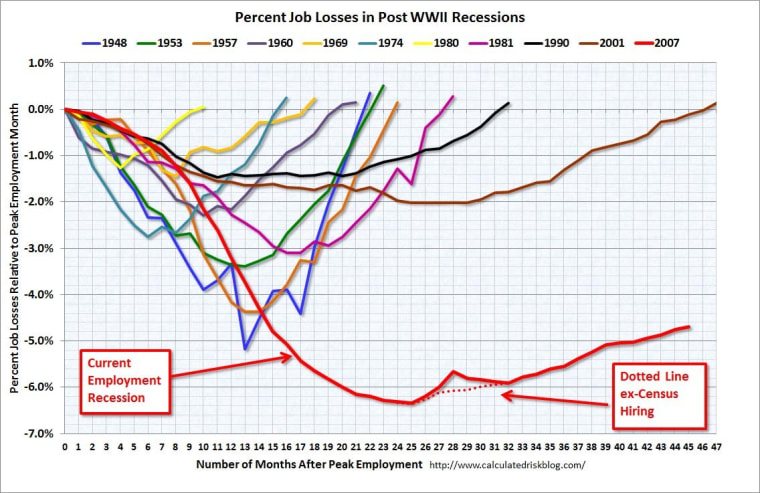Last night, with help from Democratic Senator Ben Nelson of Nebraska, Republicans blocked another jobs proposal from the White House. This one would have provided $50 billion for infrastructure like roads and rails, the kind of government spending that employed thousands during the Great Depression and built many of the parks and other public facilities that we enjoy today.
Earlier in the week Federal Reserve Chairman Ben Bernanke, a Bush appointee again sounded exasperated in saying it "would be helpful" if other parts of government would do something about jobs. But Republicans in Congress seem to prefer the prairie medicine approach: do nothing and hope the patient gets up and limps on.
That steadily climbing but still very depressing red line shows us doing just that, limping away from the Great Recession. In October, the jobless rate fell to 9.1 percent, a titch. The economy added 80,000 jobs, and the Bureau of Labor Statistics revised the totals for September and August upward, too, so there's that. We still have 13.9 million unemployed Americans, and another 11.5 million who are either stuck in part-time jobs because that's all they can find or who want a job and cannot a find one at all.
But we're limping forward. For this economy, it's either prairie medicine or the Republican clip-art jobs plan.
